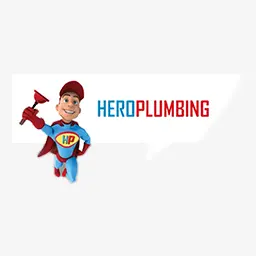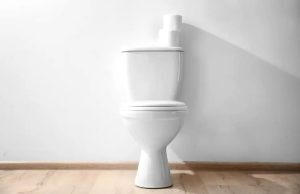Table Of Contents
Boosting Water Pressure
Maintaining proper water pressure in your home is essential. There is most likely some issue when the pressure is too high or too low. Low water pressure is a common home plumbing problem that can affect faucets and sinks and dishwashers, showerheads, toilets, and any other plumbing fixture.
The good thing is that you won’t have to live with such issues. The cause of low water pressure in the home is often quite simple, and you may not always need a plumber to fix the problem. However, there are certain cases where you will need to employ the services of a professional. This article will discuss some things that result in low water pressure and their possible solutions.
Causes Of Low Water Pressure
Low water pressure can be caused by several factors, including pipe corrosion, scale, leaks, and even gravity.
Corroded pipelines
Corrosion occurs when the oxygen in water reacts with metal. Rust, for example, is a type of corrosion. Low water pressure occurs when corrosion accumulates in a pipe and restricts water flow. As decay occurs gradually, the older your lines are, the greater the risk of corrosion.
Corrosion is more common in older pipes, and acidic water can worsen it. If your water is brown or red in colour and has an odd metal-like taste, then the acidic water may corrode your pipes. However, it is always best to consult a plumber to ensure that you are not mistaken.
Unfortunately, the only way to fix corroded pipes is to replace them. Your water pressure will improve after installing new lines.
Main water shut-off valve is closed
If you notice that your home’s water pressure has suddenly dropped and you recently had a repair done, make sure the main water shut-off valve is fully open. Most plumbing repairs involve turning off the water, but your water pressure will be reduced if the valve is not completely opened afterward.
The solution is to locate your main shut-off valve installed where the main water line enters your home. You have to fully open it by turning counter clockwise.
Hard water causing scale build-up
If hard water is coming into your taps, then scale can build up in your pipes, restricting water flow and lowering water pressure. Scale is formed when calcium and magnesium salts dissolve in hard water as these salts have a high mineral content.
When scale build-up is severe enough to block water flow and reduce water pressure, you need to replace your pipes. However, products like CLR Calcium, Lime, and Rust remover can minimise scale. But as the scale is removed, it may clog your pipes, causing another costly plumbing problem. Putting harsh chemicals in the lines that supply your drinking water is never good. You should install a water softener to prevent future scale build-up.
A municipal water issue
Your own plumbing system may not cause low water pressure. Like your home’s water supply, the municipal water supply can also be exposed to issues that can result in problems, such as leaks and corrosion.
The solution is to tell the municipal water supply of your low water pressure. Alerting them to the problem will lead to increased water pressure in your home as soon as possible.
Leak
Any leak in your house can reduce water flow and pressure. Switch off all the faucets inside and outside your premises to see if you have a leak. Check your home’s water metre about an hour later. If it indicates that you are using water, you have a leak.
This is quite a severe issue, so hiring a licensed plumber is best for locating the leak and fixing it. When the repairs are finished, your water pressure should return to normal.
Broken pressure regulator
A pressure regulator is a valve that reduces incoming water pressure as it flows from the main service line into your home. A pressure regulator is installed to protect your home from damage caused by high water pressure. The typical setting is 50 pounds per square inch (psi), but if yours is lower, then water pressure might be low.
If your pressure regulator is set to 50 psi but still feels inadequate, it could be broken or clogged. The solution is to increase the water pressure regulator’s setting to 50 psi if it is currently set lower. If your pressure regulator is broken, have a plumber replace it.
Gravity
As water ascends, it must move with the force of gravity. The higher the elevation at which water must flow, the lower the water pressure. Gravity can cause low water pressure in multi-story homes, apartment buildings, and skyscrapers.
Installing water pressure booster pumps is the best solution. Water pressure booster pumps increase water flow and improve the pressure.
Distance from a source of water
Your water pressure may be affected by your distance from the municipal water source. The greater the distance between your dwelling and the water source, the longer water will take to travel through the service line. This then results in less water flow and low water pressure. Water pressure boosters will increase both water flow and pressure.
Water treatment systems
Water treatment systems protect against contaminants and improve foul odours. They also sort out the issues that cause low water pressure. You also don’t have to worry about corrosion, scale, dirt, and debris. But if they are not correctly sized, they can contribute to the poor pressure.
To solve this:
- Ensure that the water treatment equipment is appropriately sized so that there is no significant pressure drop or flow loss.
- If required, supply a water treatment system with a booster pump to improve your water pressure.
- Make sure that the pump is positioned to increase the pressure in your home while not forcing water into the filters at higher psi, as this can damage the filtration system.
How To Detect Low Water Pressure
The simplest way to determine if you have low water pressure in your home is to test the water with a pressure gauge. Pressure gauges are simple and inexpensive. Once you install them, they allow you to quickly check your water pressure. Here’s how you can use a pressure gauge.
- Choose an outdoor faucet near the main water line if you get your water from a municipal source.
- If you use a water well, then choose a faucet near the pressure tank.
- Attach and tighten the pressure gauge to the faucet.
- To get an accurate reading, ensure no other water is being used inside or outside the house, and then turn on the faucet entirely.
- You can now read the water pressure from the gauge’s dial.
- Water pressure in a typical home should range between 40 and 50 psi. So, if it is less than 40 psi, you have low water pressure.
Best Method To Increase Your Water Pressure
The best way to boost your water pressure depends on the cause of the low pressure in the first place. If necessary, repair the plumbing issue causing the problem, such as replacing faulty pipes, fixing a leak, or replacing a broken pressure regulator. A water booster pump is a good solution if you are not satisfied with your water pressure.
A water booster pump is a centrifugal pump that increases water flow while improving low water pressure. A pressure booster pump draws water in and then pushes it out with increased force. This is similar to how the blades of a fan create a gust of air, raising the pressure. All water pressure boosters are installed where the main water line enters your home to improve the water flow in all taps and appliances.
How To Increase Well Water Pressure
You can boost well water pressure in three ways: by adjusting your tank’s pressure switch, clearing out your pipes, and installing a constant pressure system.
Adjusting the pressure switch on your tank
Using a pressure gauge, check your water pressure. If the pressure reading is less than 40 psi, adjust the pressure tank switch to increase water pressure. Find the pressure switch on the pipe connecting your well to your storage tank and adjust the pressure accordingly. Pressure switches are typically factory set to activate the well pump.
When the pressure drops to 30 psi, it turns off. A properly sized pressure tank is also crucial to the achievement of a well system and the maintenance of your preferred water pressure.
Clearing out your pipes
Waste and minerals commonly accumulate in the pipes of a well system. This results in clogging the pipes, reducing water flow, and decreasing water pressure. To increase water pressure, it is recommended that you get a licensed plumber to inspect your pipes and clear any obstructions.
Installing a constant pressure system
By replacing your pressure tank with a constant pressure system, you can ensure consistent water pressure in your home. No need to worry about how many taps are running at once. A stable pressure system will increase or decrease in response to water demand.
When there is a high water demand, the pump speed increases, and the pump speed decreases when there is low demand. A constant pressure system is an investment that will enable you to efficiently maintain the water pressure in your home.
Variable frequency drive (VFD) constant pressure systems are operated electronically. They provide consistent pressure comparable to a city water supply. However, they are costly and challenging to install.
When To Call A Plumber?
Dripping faucets
A leaking tap may not appear to be a major issue at first glance, but it can significantly impact your pocket. A dripping tap can waste hundreds of gallons of water and a considerable amount of money in the long run.
It may appear that replacing a washer or two to create a water-tight seal is a simple task. But due to the technical requirements, it is better to get the job done by a trained plumber.
A broken water valve
Another common plumbing issue that may be causing low water pressure in your home is a broken water valve. You might think of it as a simple fix – just replace the old valve with a new one, and you’re done, right? Well, it’s not that simple. Water valves are connected to the mains’ water supply, and it’s not an easy task to remove them. If you fail to do it correctly, it might cause disastrous consequences. So, leave this job to the professionals.
Leakage in pipes
Water leaks can be expensive, so correctly maintaining your water system should be a top priority. Even if the leak is on the minor side, it can cause serious damage over time, as well as a costly impact on your bank balance. To avoid further damage to your property, leave leaking pipes to a professional.
Speak To Experts For Water Pressure Issues
So, if you thoroughly read this article, you should be able to take the first steps in diagnosing your water pressure problems. When you’ve identified the problem, it’s time to focus on how to resolve it. However, there are some technical issues that an expert can only solve. Even if you identify the problem, you may not be able to solve it independently. Having low water pressure is no fun, but fortunately, increasing your water pressure is doable. Depending on the issue, you can solve the problem yourself or call in a plumber in Sydney to help.










